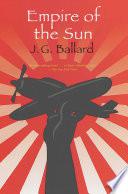Source: Empire of the Sun (1984), p. 201
Context: He waited for the roll-call to end, reflecting on the likely booty attached to a dead American pilot. Soon enough, one of the Americans would be shot down into Lunghua Camp. Jim tried to decide which of the ruined buildings would best conceal his body. Carefully eked out, the kit and equipment could be bartered with Basie for extra sweet potatoes for months to come, and even perhaps a warm coat for the winter. There would be sweet potatoes for Dr. Ransome, whom Jim was determined to keep alive. He rocked on his heels and listened to an old woman crying in the nearby ward. Through the window was the pagoda at Lunghua Airfield. Already the flak tower appeared in a new light. For another hour Jim stood in line with the missionary widows, watched by the sentry. Dr. Ransome and Dr. Bowen had set off with Sergeant Nagata to the commandant's office, perhaps to be interrogated. The guards moved around the silent camp with their roster boards, carrying out repeated roll-calls. The war was about to end and yet the Japanese were obsessed with knowing exactly how many prisoners they held. Jim closed his eyes to calm his mind, but the sentry barked at him, suspecting that Jim was about to play some private game of which Sergeant Nagata would disapprove.
